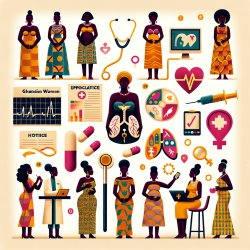Exploring Health Perceptions in Soweto: A Lesson for Practitioners
In the vibrant community of Soweto, South Africa, a qualitative study sheds light on the perceptions of diet, physical activity, and obesity-related health among black daughter-mother pairs. This research offers valuable insights that can help practitioners improve their skills and encourage further research into intergenerational health dynamics.
Understanding the Study
The study involved 17 daughters and 15 mothers, focusing on their perspectives regarding healthy eating and physical activity. Interestingly, while both generations understood the importance of a healthy lifestyle, mothers were more likely to engage in healthy behaviors due to age-related health concerns.
Key Findings
- Shared Knowledge: Both daughters and mothers had similar ideas about what constitutes healthy food and the importance of physical activity.
- Behavioral Differences: Despite having a higher BMI, mothers were more likely to adopt healthy eating and physical activity habits, often triggered by health issues.
- Intergenerational Influence: Daughters were influenced by their mothers' health behaviors, although they did not always adopt them.
Implications for Practitioners
Practitioners can leverage these findings to design community-based health promotion activities that resonate with both generations. Here are some actionable steps:
- Focus on Education: Build on existing knowledge to enhance understanding of healthy eating and physical activity.
- Promote Skill-Based Learning: Teach families how to prepare healthy meals on a budget and incorporate traditional foods in a healthier way.
- Encourage Physical Activity: Support the creation of adult sports teams and provide affordable gym memberships to encourage regular exercise.
Encouraging Further Research
This study highlights the need for further research into the intergenerational dynamics of health behaviors. Understanding how daughters with a predisposition to obesity maintain a normal BMI can provide valuable insights for developing effective interventions.
Conclusion
The study of daughter-mother pairs in Soweto offers a unique perspective on health behaviors across generations. By focusing on shared knowledge and addressing behavioral differences, practitioners can develop targeted interventions to combat obesity and promote healthier lifestyles.
To read the original research paper, please follow this link: Perceptions of diet, physical activity, and obesity-related health among black daughter-mother pairs in Soweto, South Africa: a qualitative study.










